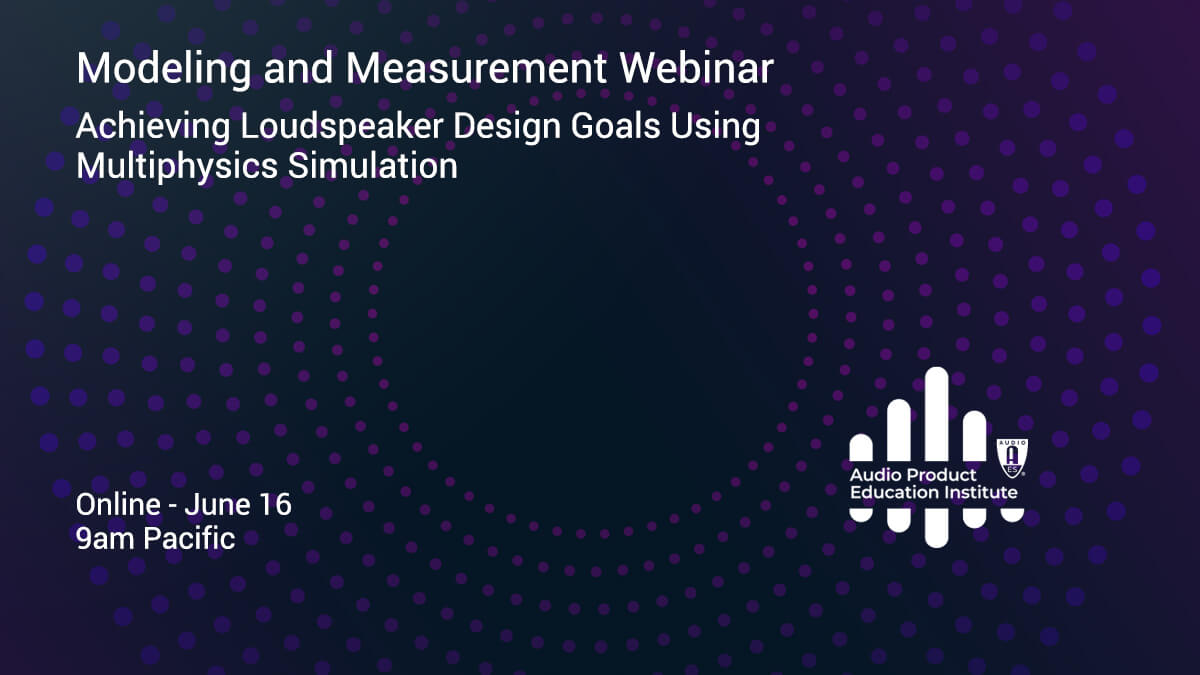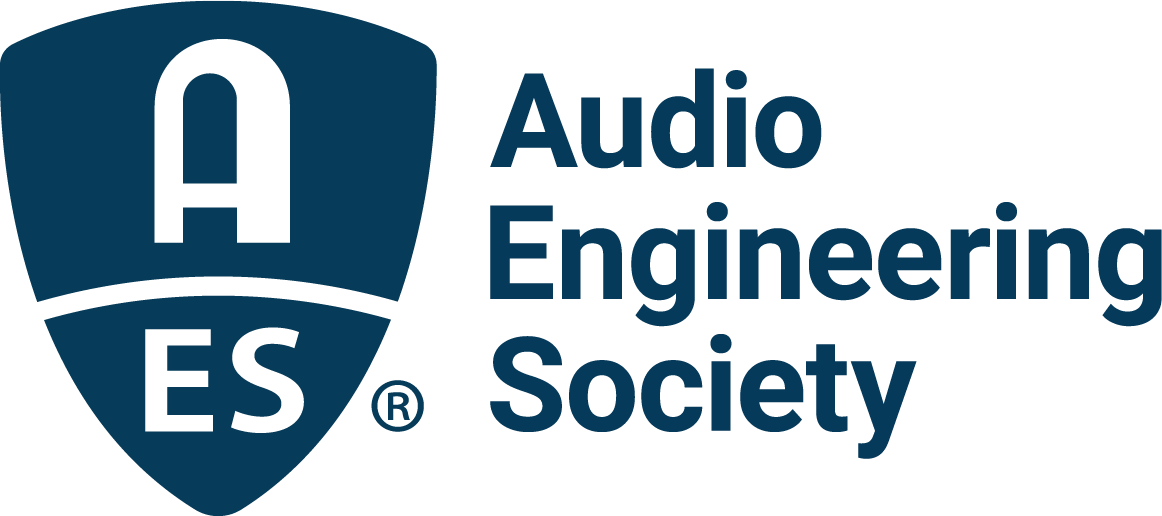

Location
Organizer

APEI
Website
https://audioproducteducationinstitute.org/The Audio Product Education Institute (APEI) is an initiative of the Audio Engineering Society (AES) that is committed to furthering the knowledge and skills of professionals involved in the development of audio products. APEI will focus on promoting methodologies, practices and technologies involved in developing and bringing audio products to market.
Speakers
-
 Lakshmikanth TipparajuSenior Acoustic System and Transducer Engineer at Dolby Laboratories San Francisco Bay Area, USA
Lakshmikanth TipparajuSenior Acoustic System and Transducer Engineer at Dolby Laboratories San Francisco Bay Area, USALakshmikanth Tipparaju is a senior acoustic system and transducer engineer at Dolby Laboratories in San Francisco, where he has been working since 2018. At Dolby, his role focuses on simulation-driven development of acoustic systems and transducers for developing innovative acoustic hardware solutions to help expand adoption of Dolby Atmos in consumer products and has contributed to the development of ultra-thin Dolby Atmos Enabled Speaker technology. Prior to Dolby, he worked as a simulation engineer within the Audio R&D group at Samsung Research America, focusing on FEM modeling of loudspeaker drive units and enclosures. Lakshmikanth holds two patents in loudspeaker technology and has authored several papers on simulation-driven loudspeaker development. He received his master of science degree from Arizona State University and is a member of the Audio Engineering Society.
-
 Jinlan HuangLead Applications Engineer, COMSOL Massachusetts, USA
Jinlan HuangLead Applications Engineer, COMSOL Massachusetts, USAJinlan Huang is a lead applications engineer for vibrations and acoustics at COMSOL and instructs acoustics training courses. She received her PhD from Boston University, Department of Aerospace and Mechanical Engineering, investigating acoustic wave propagation in complex-tissue environments and ultrasound-induced tissue heating and bleeding control. She joined COMSOL in 2011.
Location
There are many events that are held online throughout the year.

Organizer
APEI
Website
LinkThe Audio Product Education Institute (APEI) is an initiative of the Audio Engineering Society (AES) that is committed to furthering the knowledge and skills of professionals involved in the development of audio products. APEI will focus on promoting methodologies, practices and technologies involved in developing and bringing audio products to market.
Date
- Jun 16 2021
- Expired!
Time
Pacific- 9:00 am - 10:00 am
Achieving Loudspeaker Design Goals Using Multiphysics Simulation
Modeling and Measurement Webinar
In this webinar, Dolby Laboratories and COMSOL join the Audio Product Education Institute in a discussion on the role of modeling and measurements in the loudspeaker design process. Hear from Lakshmikanth Tipparaju, Dolby, as he shares project experiences of the design of a height channel speaker for immersive audio setups, and how simulation, measurements, and experiments helped to ensure that the design met the design requirements. In a second talk, Jinlan Huang of COMSOL will discuss the use of simulation in audio system design and the various numerical approaches to consider for multiphysics modeling of loudspeakers.
Session 1: Lakshmikanth Tipparaju (Dolby Laboratories)
Modeling and Measurement Techniques for Developing Height Channel Speakers in a Multichannel Audio Playback DeviceModern home audio products are starting to feature integrated, upward-firing height channel speakers to create a fully immersive audio experience for consumers. This presentation will provide an overview of design principles and the narrow radiation requirements for optimum height channel sound reproduction for home entertainment systems. This will be followed by a simulation case study discussing how acoustic modeling techniques can be used to guide the new height channel speaker concept development process to achieve the desired narrow radiation characteristics, while considering certain practical product integration constraints. The importance of validating acoustical models using experimental testing methods will also be briefly discussed in this presentation.
Session 2: Jinlan Huang (COMSOL)
Choosing the Right Numerical Approach for Your Loudspeaker SimulationThere are many reasons for audio product development teams to use simulation in their design process. In addition to shortening design cycles, simulation allows engineers to explore novel ideas and analyze performance before prototyping, as well as optimize new and existing products and study how a device will interact with its future environment. The simulation may require various numerical approaches, depending on the accuracy required, the desired output of the analysis, and the complexity of the system. Using loudspeakers as an example, we will discuss how the study can range from lumped electroacoustics models in the frequency domain to nonlinear transient analyses of total harmonic distortion. Through examples and demonstrations, you will receive insight into the modeling techniques available for loudspeaker simulations and learn the strategies required in order to obtain the full frequency range response of the system, as well as appropriate post-processing tools that provide you with a fully virtual testing environment.
